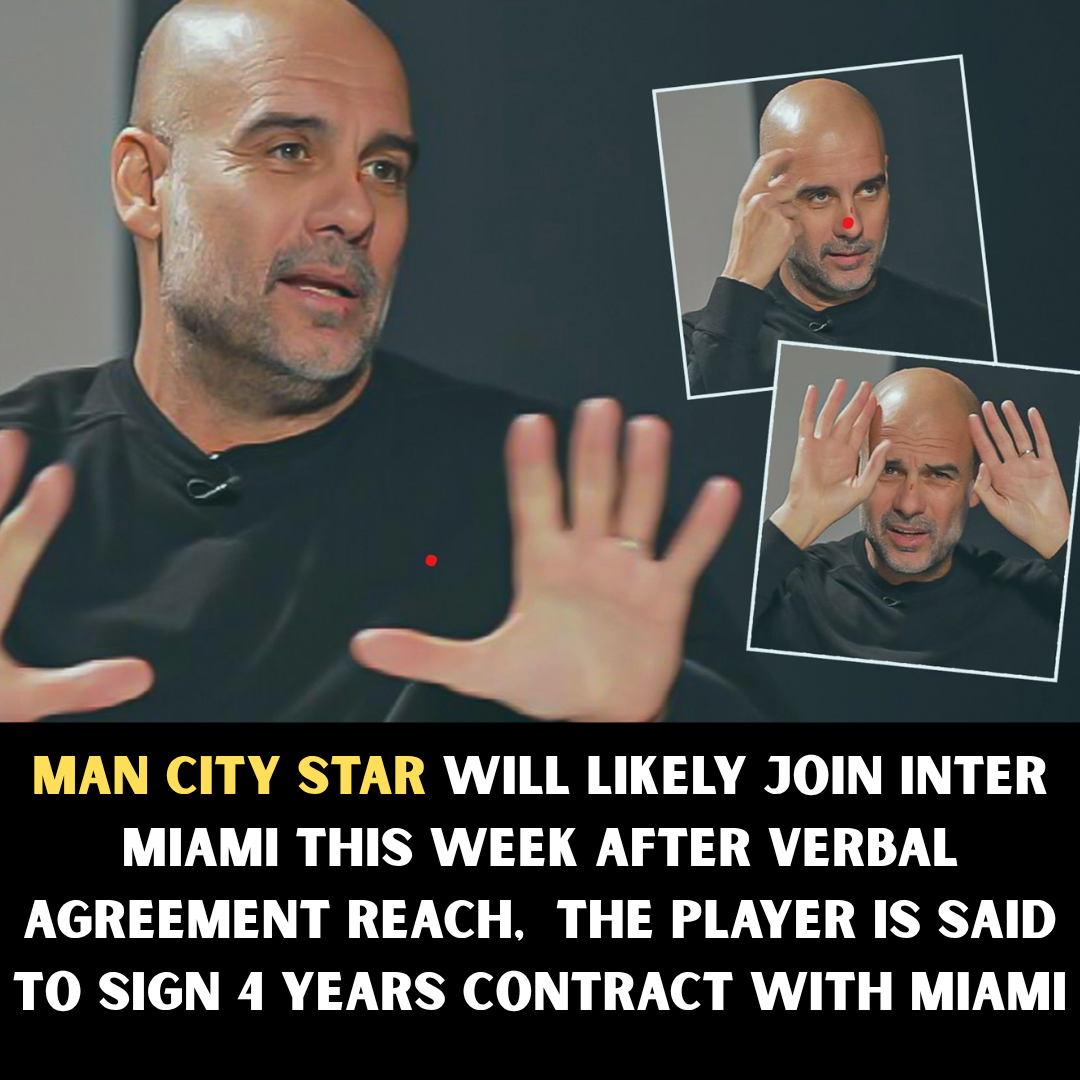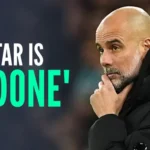Milan loan move with AC Milan also linked with defender – Paper Talk

The football world is abuzz with speculation surrounding Manchester City’s veteran defender Kyle Walker and his potential departure from the Etihad Stadium. The 34-year-old England international, who has been a cornerstone of City’s defensive setup for over seven years, appears to be on the verge of a sensational move to Italian giants Inter Milan on loan, with AC Milan also reportedly monitoring the situation closely.
Walker’s situation at Manchester City has become increasingly complex as the season progresses. Despite his wealth of experience and leadership qualities, the defender has found himself facing increased competition for his position, with younger players emerging through City’s academy system and new signings potentially threatening his regular starting berth. The writing appears to be on the wall following manager Pep Guardiola’s recent comments confirming that Walker has expressed his desire to explore opportunities abroad for a “new experience.”
This development represents a significant shift in Walker’s career trajectory. Since joining Manchester City from Tottenham Hotspur in 2017 for a fee that could rise to £54 million, Walker has been instrumental in the club’s unprecedented success. His pace, defensive acumen, and ability to contribute in attack have made him one of the Premier League’s most consistent full-backs. Over his tenure at City, he has accumulated an impressive trophy haul, including multiple Premier League titles, FA Cups, League Cups, and the coveted Champions League trophy.
The prospect of a move to Inter Milan represents an intriguing opportunity for Walker to test himself in Serie A, widely regarded as one of Europe’s most tactically sophisticated leagues. Inter Milan, under the guidance of Simone Inzaghi, have established themselves as one of Italy’s premier clubs, having won the Serie A title in recent years and consistently competing at the highest level in European competitions. The Nerazzurri’s tactical approach, which emphasizes defensive solidity and tactical discipline, could prove to be an ideal fit for Walker’s skill set and experience.
The loan structure of the potential deal suggests that both clubs see mutual benefits in the arrangement. For Manchester City, it provides an opportunity to manage their squad dynamics while potentially reducing their wage bill, allowing younger players to step up and gain valuable experience. For Inter Milan, acquiring a player of Walker’s caliber and experience on a temporary basis represents excellent value, particularly given the financial constraints that many European clubs continue to face.
AC Milan’s interest adds another layer of intrigue to the situation. The Rossoneri, traditional rivals of Inter Milan, are always looking to strengthen their squad and compete at the highest level. Milan’s involvement in the pursuit of Walker creates a fascinating dynamic, with both Milan clubs potentially vying for the services of the experienced defender. This competition could work in Walker’s favor, allowing him to choose the project that best aligns with his career objectives and personal preferences.
The timing of this potential move is particularly significant. Walker is at a stage in his career where he still possesses the physical attributes and tactical intelligence to compete at the highest level, but he may be seeking new challenges and experiences before the inevitable decline that comes with age. A move to Italy would provide him with the opportunity to experience a different football culture, tactical approach, and competitive environment.
From a tactical perspective, Walker’s versatility could prove invaluable to either Milan club. His ability to play as a traditional right-back, wing-back, or even as part of a back three gives his potential new manager multiple options in terms of formation and tactical setup. This flexibility has been one of Walker’s greatest assets throughout his career and would undoubtedly be appreciated by coaches in Serie A, where tactical adaptability is highly valued.
Garnacho’s Potential Departure: Napoli’s Ambitious Pursuit
While the Walker saga dominates headlines, another significant transfer story is developing in the form of Alejandro Garnacho’s potential move from Manchester United to Napoli. The young Argentine winger has emerged as one of the most promising talents in European football, and his possible departure from Old Trafford has sent shockwaves through the Manchester United fanbase.
Garnacho’s rise through the ranks at Manchester United has been nothing short of meteoric. The 20-year-old has established himself as a key player under various managers, showcasing his pace, directness, and ability to create and score goals from wide positions. His performances have not gone unnoticed, with Napoli reportedly identifying him as the ideal replacement for Khvicha Kvaratskhelia, who has been linked with moves to several top European clubs.
The potential acquisition of Garnacho would represent a statement of intent from Napoli, demonstrating their ambition to remain competitive at the highest level despite the possible departure of key players. Kvaratskhelia has been instrumental in Napoli’s recent success, and finding an adequate replacement would be crucial for the club’s continued competitiveness in Serie A and European competitions.
For Garnacho, a move to Napoli would represent a significant step in his career development. Playing in Serie A would expose him to different tactical approaches and competitive pressures, potentially accelerating his development as a player. The opportunity to be a key player for a club with European aspirations could prove irresistible, particularly if his playing time at Manchester United becomes limited due to increased competition.
However, Manchester United would undoubtedly be reluctant to lose one of their most promising academy graduates. Garnacho represents the type of player that clubs invest heavily in developing, and his potential departure would be seen as a significant loss for the club’s long-term planning. The financial implications of such a move would also be substantial, with Napoli likely needing to meet United’s valuation to secure the player’s services.
Liverpool’s Strategic Recall: Gordon’s Development Path
Liverpool’s decision to recall Kaide Gordon from his loan spell at Norwich City highlights the complex nature of player development in modern football. The young winger, who was highly regarded within Liverpool’s academy system, was sent to Norwich to gain valuable first-team experience in the Championship. However, his recall suggests that either his development trajectory has been reassessed or that Liverpool have identified an immediate opportunity for him within their squad.
Gordon’s situation reflects the challenges faced by young players attempting to break into top-level football. The transition from academy football to senior competition is never straightforward, and loan spells are often crucial in a player’s development. Norwich City, with their reputation for developing young talent, seemed like an ideal destination for Gordon to gain experience and develop his game.
The recall could indicate several possibilities. Liverpool may have assessed that Gordon would benefit more from training with the first team and potentially featuring in cup competitions or as a substitute in Premier League matches. Alternatively, injuries or departures within Liverpool’s squad may have created opportunities that weren’t previously available.
From Norwich’s perspective, losing a promising loanee mid-season is always disappointing, particularly if the player had been contributing to their campaign. Championship clubs often rely on loan signings to strengthen their squads, and the early recall of players can disrupt their planning and team dynamics.
West Ham’s Injury Crisis: Fullkrug’s Setback
West Ham United’s season has taken another significant blow with the news that striker Niclas Fullkrug will be sidelined for three months due to a hamstring injury. This development leaves the Hammers with a severe shortage of striking options, potentially forcing them into the transfer market to address this critical gap in their squad.
Fullkrug’s injury represents a major setback for both the player and the club. The German international, who joined West Ham with high expectations following his impressive performances for Borussia Dortmund and the German national team, was expected to provide the goalscoring threat that the club had been lacking. His absence for such an extended period leaves manager Julen Lopetegui with limited options in attack.
The timing of the injury is particularly unfortunate, occurring during a crucial period of the season when teams are fighting for points to achieve their objectives. West Ham, who have ambitions of competing for European qualification, cannot afford to have their main striker sidelined for such a significant period.
This situation highlights the importance of squad depth in modern football. Injuries are an inevitable part of the game, and clubs must be prepared to cope with the absence of key players. West Ham’s current predicament may force them to explore the transfer market for short-term solutions or to rely more heavily on younger players from their academy system.
The injury also raises questions about West Ham’s recruitment strategy and whether they adequately prepared for such eventualities when building their squad. Having only one fit senior striker represents a significant risk that has now materialized, potentially derailing their season unless addressed promptly.
Burnley’s Ambitions: The Whittaker Pursuit
Burnley’s reported interest in Plymouth Argyle forward Morgan Whittaker demonstrates the club’s proactive approach to strengthening their squad during the January transfer window. Whittaker has been one of the standout performers in League One, attracting attention from clubs higher up the football pyramid due to his consistent goalscoring record and overall contribution to Plymouth’s attacking play.
The 27-year-old forward has developed into one of the most reliable goalscorers in League One, combining pace, technical ability, and a keen eye for goal. His performances have not only helped Plymouth in their league campaign but have also caught the attention of scouts from Championship clubs looking to strengthen their attacking options.
For Burnley, who are competing in the Championship after their relegation from the Premier League, adding a proven goalscorer like Whittaker could be crucial to their promotion ambitions. The Championship is notoriously competitive, and having reliable goalscorers can often be the difference between success and failure in the division.
Whittaker’s potential move would represent a significant step up in his career, moving from League One to the Championship with a club that has recent Premier League experience. This transition would test his ability to perform at a higher level and could serve as a stepping stone to even greater opportunities in the future.
From Plymouth’s perspective, losing their star forward would be a significant blow to their own ambitions. However, the financial benefits of such a transfer could help the club invest in other areas of their squad and continue their development as a football club.
Market Dynamics and Financial Considerations
The January transfer window presents unique challenges and opportunities for football clubs across all divisions. Unlike the summer window, clubs have limited time to identify, negotiate, and complete transfers while also managing their existing squad dynamics and competitive commitments.
The financial landscape of modern football continues to evolve, with clubs increasingly conscious of Financial Fair Play regulations and the need to balance their books. This has led to more creative deal structures, including loan arrangements with obligations to buy, performance-based fee structures, and player exchange deals.
The cases highlighted in this roundup demonstrate various approaches to the transfer market. Walker’s potential loan move provides Inter Milan with a high-quality player without the long-term financial commitment of a permanent transfer. Meanwhile, Napoli’s pursuit of Garnacho would likely require a substantial financial investment, reflecting the premium placed on young, promising talent.
Tactical Implications and Strategic Planning
Each of these potential transfers carries significant tactical implications for the clubs involved. Walker’s experience and versatility would provide tactical flexibility for either Milan club, allowing their coaches to adapt their formation and playing style based on the opposition and game situation.
Garnacho’s potential move to Napoli would need to be carefully managed tactically, as he would be expected to fill the void left by Kvaratskhelia while also adapting to the tactical demands of Serie A football. The Italian league’s emphasis on tactical discipline and defensive organization could provide valuable learning experiences for the young Argentine.
West Ham’s injury crisis with Fullkrug forces them to reconsider their tactical approach and potentially modify their playing style to accommodate the players available. This could involve playing with a false nine, utilizing wide forwards in more central roles, or adapting their formation to maximize the effectiveness of their remaining attacking options.
Conclusion: The Ever-Evolving Transfer Landscape
The transfer stories emerging from the January window highlight the complex, interconnected nature of modern football. Player movements create ripple effects throughout the football ecosystem, influencing tactical approaches, financial planning, and long-term strategic objectives for clubs at all levels.
As these stories develop, they will undoubtedly influence other transfer activities, with clubs adjusting their targets and strategies based on the movements of players and the changing dynamics within the market. The coming weeks will reveal whether these potential transfers materialize and how they impact the respective clubs and players involved.
The January transfer window continues to provide drama, speculation, and significant developments that shape the landscape of European football. As clubs balance immediate needs with long-term planning, the decisions made during this period will have lasting implications for seasons to come.















